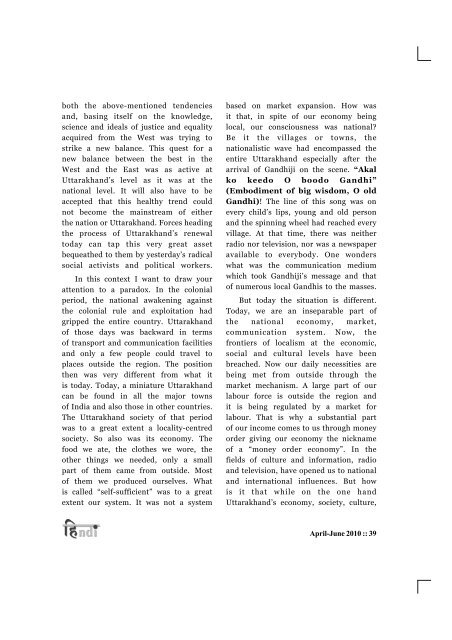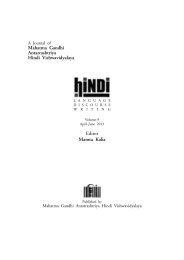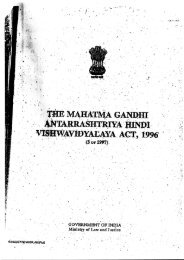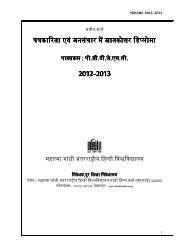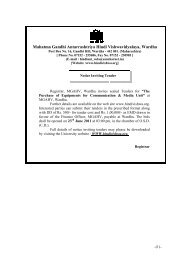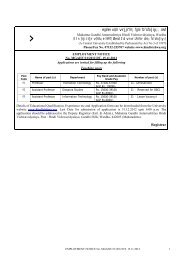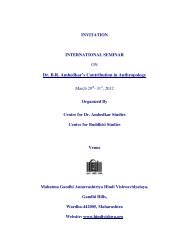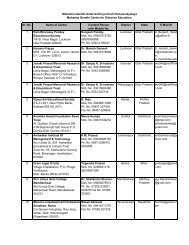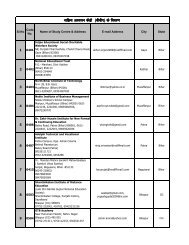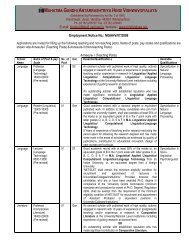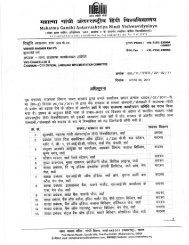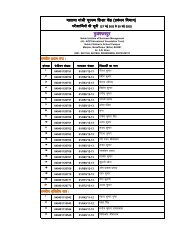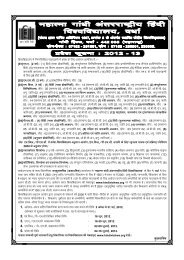Mamta Kalia
Mamta Kalia
Mamta Kalia
You also want an ePaper? Increase the reach of your titles
YUMPU automatically turns print PDFs into web optimized ePapers that Google loves.
oth the above-mentioned tendencies<br />
and, basing itself on the knowledge,<br />
science and ideals of justice and equality<br />
acquired from the West was trying to<br />
strike a new balance. This quest for a<br />
new balance between the best in the<br />
West and the East was as active at<br />
Uttarakhand’s level as it was at the<br />
national level. It will also have to be<br />
accepted that this healthy trend could<br />
not become the mainstream of either<br />
the nation or Uttarakhand. Forces heading<br />
the process of Uttarakhand’s renewal<br />
today can tap this very great asset<br />
bequeathed to them by yesterday’s radical<br />
social activists and political workers.<br />
In this context I want to draw your<br />
attention to a paradox. In the colonial<br />
period, the national awakening against<br />
the colonial rule and exploitation had<br />
gripped the entire country. Uttarakhand<br />
of those days was backward in terms<br />
of transport and communication facilities<br />
and only a few people could travel to<br />
places outside the region. The position<br />
then was very different from what it<br />
is today. Today, a miniature Uttarakhand<br />
can be found in all the major towns<br />
of India and also those in other countries.<br />
The Uttarakhand society of that period<br />
was to a great extent a locality-centred<br />
society. So also was its economy. The<br />
food we ate, the clothes we wore, the<br />
other things we needed, only a small<br />
part of them came from outside. Most<br />
of them we produced ourselves. What<br />
is called “self-sufficient” was to a great<br />
extent our system. It was not a system<br />
based on market expansion. How was<br />
it that, in spite of our economy being<br />
local, our consciousness was national?<br />
Be it the villages or towns, the<br />
nationalistic wave had encompassed the<br />
entire Uttarakhand especially after the<br />
arrival of Gandhiji on the scene. “Akal<br />
ko keedo O boodo Gandhi”<br />
(Embodiment of big wisdom, O old<br />
Gandhi)! The line of this song was on<br />
every child’s lips, young and old person<br />
and the spinning wheel had reached every<br />
village. At that time, there was neither<br />
radio nor television, nor was a newspaper<br />
available to everybody. One wonders<br />
what was the communication medium<br />
which took Gandhiji’s message and that<br />
of numerous local Gandhis to the masses.<br />
But today the situation is different.<br />
Today, we are an inseparable part of<br />
the national economy, market,<br />
communication system. Now, the<br />
frontiers of localism at the economic,<br />
social and cultural levels have been<br />
breached. Now our daily necessities are<br />
being met from outside through the<br />
market mechanism. A large part of our<br />
labour force is outside the region and<br />
it is being regulated by a market for<br />
labour. That is why a substantial part<br />
of our income comes to us through money<br />
order giving our economy the nickname<br />
of a “money order economy”. In the<br />
fields of culture and information, radio<br />
and television, have opened us to national<br />
and international influences. But how<br />
is it that while on the one hand<br />
Uttarakhand’s economy, society, culture,<br />
April-June 2010 :: 39


